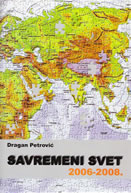| NSPM in English | |||
Falling Out |
 |
 |
 |
| уторак, 27. април 2010. | |
|
(The National Interest, 23.4.2010)
But over the past seven or eight years, Turkey’s international behavior has begun to cause noticeable uneasiness among U.S. officials and members of the foreign policy community. A chill has developed in U.S.-Turkish relations, and it is likely to get worse. The first major blow to the relationship occurred in early 2003 when U.S. leaders sought permission from Turkey to open a northern front from Turkish territory for the impending conflict with Iraq. Turkish leaders demanded a huge sum (reportedly in excess of $30 billion) for permitting such an operation. Even if Washington had agreed to such thinly veiled extortion, though, it is not at all clear that Ankara would have gone ahead with the agreement. It was the Bush administration’s bad luck that an Islamist government, led by the Justice and Development Party (AKP), had taken power following the electoral rout of the traditional Kemalist secular parties in November 2002. That government was not inclined to back another U.S. war against a Muslim country. Washington could not count on support from the secular Turkish military for that venture either—a point that embittered U.S. military leaders, who complained about the ingratitude of America’s ally. But Turkish military commanders were at least as worried as the civilian politicians about the probable impact of the strategy to depose Saddam Hussein. In their view, such a step would exacerbate the problems with the Kurdish region of Iraq that the Persian Gulf War and the imposition of the northern no-fly zone had already caused since the early 1990s. Ousting Saddam, they believed, would fatally weaken the government in Baghdad and allow Kurdish secessionist forces in northern Iraq to run amok. That was not a minor issue for Turkey. About 20 percent of the Kurdish population in the Middle East reside in Iraq, but fully 50 percent live in southeastern Turkey, where a low-level insurgency by the Marxist Kurdistan Workers Party (PKK) remained stubbornly persistent. Any emergence of a Kurdish political entity in northern Iraq was seen as a potential threat to the unity of the Turkish state. The gap between U.S. and Turkish views regarding Iraq has grown to a chasm in the years since the overthrow of Saddam’s regime. Turkish leaders have seen Iran’s influence in Iraq on the rise, epitomized by Tehran’s cozy ties with the Shiite-led government of Prime Minister Nouri al-Maliki, a development that almost no one in Turkey welcomed. Even worse, from Ankara’s standpoint, is the now ostentatious de facto independence of Iraqi Kurdistan. To Turkish leaders, both military and civilian, that undesirable development was the inevitable product of a myopic U.S. policy, and they are seething over it. To make matters worse, the PKK insurgency, which had subsided in the years since the capture of the organization’s leader, Abdullah Ocalan, in 1999, flared again as Iraqi Kurdistan consolidated its de facto independence. PKK fighters used Kurdish territory in Iraq as a sanctuary from which to launch attacks inside Turkey. Ankara’s complaints to Washington about that situation and the Kurdish regional government’s failure to take action against PKK fighters mounted steadily. Finally, the Turkish government, under pressure from the military, warned Washington in late 2007 that it would launch an offensive into northern Iraq to clean out PKK sanctuaries. U.S. officials sought to mediate between Ankara and the Kurdish regional government, facing the prospect that its long-time NATO ally and the most pro-American faction in Iraq might well go to war against each other. Washington ultimately managed to prevail on the Turkish military to scale-down the scope of its intervention and pressured the Kurdish regime to avoid direct confrontation with invading Turkish forces. But neither side was happy with the arrangement, and Turkey continues to stir the pot by threatening to launch new offensives. At a minimum, Ankara’s behavior has complicated Washington’s already troubled mission in Iraq, and U.S. officials are understandably unhappy. The Turkish government’s repeated warnings that it will not tolerate Iraq’s oil-rich city of Kirkuk to come under the jurisdiction of the Kurdish regional government is also a growing source of tension. From Washington’s standpoint, Turkey has not been acting like much of an ally with respect to Iraq policy. From Ankara’s standpoint, U.S. policy in Iraq is clumsy, obtuse and undermines important Turkish interests. That dispute has clearly been a catalyst, perhaps the principal catalyst, for the noticeable deterioration in U.S.-Turkish relations. But the foreign-policy sources of the growing estrangement lie deeper. Ankara is quite deliberately deemphasizing ties with its traditional NATO allies, including the United States, and is placing greater emphasis on strengthening links within the Muslim world, especially the Arab nations. The government of Prime Minister Erdogan not only has distanced itself from Washington’s wildly unpopular policy in Iraq, but key differences have emerged about how to deal with Iran. Ankara continues to oppose the U.S.-led strategy of imposing multilateral economic sanctions on Tehran because of that government’s apparent quest to build nuclear weapons. That stance puts Turkey in the same camp as China and Russia on the Iran issue, much to Washington’s chagrin. But it is consistent with Ankara’s overall rapprochement with Moscow. Turkey is not only cooperating closely with Russia on energy issues, but it has tilted toward its onetime adversary on other matters. Most notably, the Turkish government did not back the angry U.S. reaction toward Russia during that country’s 2008 war against Georgia. Nor has Turkey been supportive of Washington’s goal to add Georgia and Ukraine to the roster of NATO members—a move that Moscow regards as hostile to its interests. If Washington is unhappy about the increasingly friendly ties between Turkey and Russia, it is even more distressed about the rapidly escalating animosity between Turkey and Israel. Ankara’s blunt criticism of the Israeli military offensive in Gaza last year is the most visible indicator of deteriorating Israeli-Turkish relations, but it is hardly the only one. Those ties reached their nadir earlier this year when the Israeli deputy foreign minister humiliated the Turkish ambassador—by, among other actions, making him sit on a couch blatantly lower than his host’s, thereby making him look like a school child awaiting a scolding from the principal. The frosty relations between Turkey and Israel have had a further negative impact on U.S.-Turkish ties. Washington is deeply unhappy that Ankara has apparently become unfriendly toward America’s favorite ally in the region. The latest blow to the U.S.-Turkish relationship came last month when the House Foreign Affairs Committee voted to approve a resolution condemning the Armenian genocide that occurred during the final years of the Ottoman Empire. Previous resolutions on that topic had always died in committee. The reaction to the latest vote in Turkey was one of fury, and Ankara recalled its ambassador to Washington for several weeks. Although congressional leaders and even Turkey’s long-standing friends in the U.S. military are beginning to have second thoughts about the reliability of the political and security partnership with Ankara, the Obama administration has not yet given up on its goal to establish closer ties with Turkey. That will not be an easy task, though. The foreign-policy differences between Washington and Ankara are now both numerous and profound. Going forward, the United States is likely to have a rocky relationship, at best, with that keystone power. Ted Galen Carpenter, vice president for defense and foreign policy studies at the Cato Institute, is the author of more than 400 articles and eight books on international affairs. His latest book is Smart Power: Toward a Prudent Foreign Policy for America (2008). He is also a contributing editor to The National Interest. |
Остали чланци у рубрици
- Playing With Fire in Ukraine
- Kosovo as a res extra commercium and the alchemy of colonization
- The Balkans XX years after NATO aggression: the case of the Republic of Srpska – past, present and future
- Из архиве - Remarks Before the Foreign Affairs Committee of the European Parliament
- Dysfunction in the Balkans - Can the Post-Yugoslav Settlement Survive?
- Serbia’s latest would-be savior is a modernizer, a strongman - or both
- Why the Ukraine Crisis Is the West’s Fault
- The Ghosts of World War I Circle over Ukraine
- Nato's action plan in Ukraine is right out of Dr Strangelove
- Why Yanukovych Said No to Europe

.jpg)








 For more than six decades, U.S. officials have regarded Turkey as an important, loyal U.S. ally. Throughout the Cold War, Washington viewed Turkey as NATO’s indispensable “southeast anchor.” When the Cold War ended, many members of the American foreign-policy community insisted that Turkey was an even more important U.S. security partner than before. Paul Wolfowitz, who would become deputy secretary of defense under President George W. Bush, was one of several prominent experts who argued that there were a handful of “keystone powers” in the international system, and that Turkey was high on that list. Pro-Turkish analysts argued that in a post-Cold War environment, Turkey not only remained NATO’s southeast anchor, it was also a crucial bridge between the Middle East and Europe and a valuable conduit for Western, secular influence in much of the Muslim world, especially the Central Asian republics that emerged from the wreckage of the Soviet Union.
For more than six decades, U.S. officials have regarded Turkey as an important, loyal U.S. ally. Throughout the Cold War, Washington viewed Turkey as NATO’s indispensable “southeast anchor.” When the Cold War ended, many members of the American foreign-policy community insisted that Turkey was an even more important U.S. security partner than before. Paul Wolfowitz, who would become deputy secretary of defense under President George W. Bush, was one of several prominent experts who argued that there were a handful of “keystone powers” in the international system, and that Turkey was high on that list. Pro-Turkish analysts argued that in a post-Cold War environment, Turkey not only remained NATO’s southeast anchor, it was also a crucial bridge between the Middle East and Europe and a valuable conduit for Western, secular influence in much of the Muslim world, especially the Central Asian republics that emerged from the wreckage of the Soviet Union.












